June 20, 2017, Update
California enacted the Revised Uniform Fiduciary Access to Digital Assets Act, effective January 1, 2017 (Probate Code Sections 870-884). This new law governs how the digital assets of the deceased person will be accessible by anyone who claims to have a right to the assets.
How do you control your digital legacy? Personal assets today to be considered as part of your estate planning include the computer digital world and information you create on the internet. The developing technology of “cloud” storage presents more challenges to knowing where your data is actually physically stored. The retrieval of this information and other digital assets depend on you remembering a list of account names and passwords.
Digital assets include digital devices, emails, blog posts, digital documents, images, audio, video and social media/network accounts. Most people today conduct financial transactions through their financial management computer accounts. Medical records are also accessed via computer accounts. Financial institutions and medical providers have user terms which you agree to when you sign up for the account. Also, social media/network accounts terms of use are accepted when you sign up for your accounts. As of July 2015, some social media/network terms include the following:
(1) Facebook terms include “…You own all of the content and information you post on Facebook… For content that is covered by intellectual property rights, like photos and videos (IP content), you specifically give… permission… you grant … a non-exclusive, transferable, sub-licensable, royalty-free, worldwide license to use any IP content that you post on or in connection with Facebook… You will not share your password … let anyone else access your account, or do anything else that might jeopardize the security of your account…You will not transfer your account …to anyone without first getting … written permission…”
(2) Yahoo terms include “…You are responsible for maintaining the confidentiality of the password and account and are fully responsible for all activities that occur under your password or account…. Yahoo does not claim ownership of Content you submit or make available for inclusion on the Yahoo Services. However…. on publicly accessible areas of the Yahoo Services, you grant Yahoo the … worldwide, royalty-free and non-exclusive license(s), as applicable…”
(3) Twitter terms include “…Most Content you submit, post, or display through the Twitter Services is public by default and will be able to be viewed by other users and through third party services and websites… You are responsible for safeguarding the password that you use to access the Services and for any activities or actions under your password… You retain your rights to any Content you submit, post or display on or through the Services. By submitting, posting or displaying Content on or through the Services, you grant … a worldwide, non-exclusive, royalty-free license (with the right to sublicense) to use, copy, reproduce, process, adapt, modify, publish, transmit, display and distribute such Content in any and all media or distribution methods… If you stop using the Services without deactivating your accounts, your accounts may be deactivated due to prolonged inactivity…”
(4) Google terms include “…To protect your Google Account, keep your password confidential… automated systems analyze your content (including emails) to provide you personally relevant product features, such as customized search results, tailored advertising, and spam and malware detection. This analysis occurs as the content is sent, received, and when it is stored…”
There are federal laws which provide for criminal penalties for the unauthorized access to computers and using computer accounts to access facilities without authorization or exceeding authorized access (Computer Fraud Abuse Act 18 U.S.C. § 1030 and The Electronic Communications Privacy Act, 18 U.S.C. §§ 2701 et seq.). So the issue for someone trying to access computer accounts of another person is whether or not such access is authorized under the terms of the use agreement. Persons who want to have someone else have authority to access their accounts can give written permission to the other party. However, at what point does that party have permission will need to be clarified. Does the party have immediate permission or permission after an occurring event, like incompetency or death?
As a result of persons not being able to access Facebook accounts after the death of a relative account holder Facebook now allows the account holder to specify a person who will be identified in the legacy contract. The account holder can also specify that the account is to be deleted upon the death of the account holder. If a person is designated in the legacy provisions that person will have expressed authority as defined by the Facebook policy. You can find out more information about Facebook’s legacy contract on the Facebook website. Google recently unveiled procedures for users to delete data Google has about them.
Wills and Trusts can include provisions to give executors or trustees power over digital assets. California Civil Code § 3344.1 provides a cause of action against “…Any person who uses a deceased personality’s name, voice, signature, photograph, or likeness, in any manner, on or in products, merchandise, or goods, or for purposes of advertising or selling, or soliciting purchases of, products, merchandise, goods, or services, without prior consent from the person…” This right can be assigned through estate planning.
